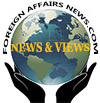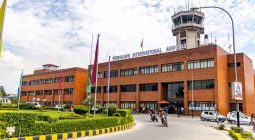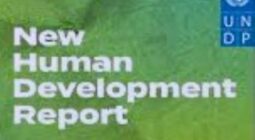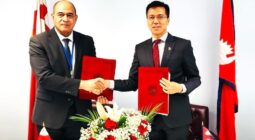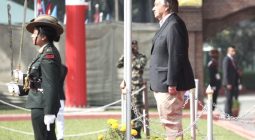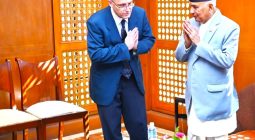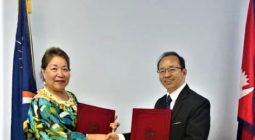In a workshop organized in capital today by South Asia Watch on Trade, Economics and Environment (SAWTEE) and Third World Network (TWN) on the subject “Preparedness of Nepal’s pharmaceutical sector in the face of LDC graduation”, the experts discussed the challenges face by Nepali pharmaceutical industry in the context of new intellectual property regime after Nepal’s graduation from the least-developed country (LDC) status.
They identified the major policy and institutional challenges for the optimal use of Trade Related Aspects on Intellectual Property Rights (TRIPS) flexibilities, and suggested a way forward, as stated the press release.
In his welcome remarks Executive Director at SAWTEE Dr. Paras Kharel emphasized the flexibilities that Nepal would receive as an LDC and the preparedness of the pharmaceutical sector for the challenges it may encounter after 2026.
Through his presentation at the programme Chairperson of the SAWTEE Dr. Posh Raj Pandey outlined the findings of the draft report jointly prepared by SAWTEE and TWN and suggested that Nepal could still avail different flexibilities even after the graduation, immediately during the transition phase and later as a developing countries too while strengthening the capacity of domestic pharmaceutical manufacturers.

President, Association of Pharmaceutical Producers of Nepal (APPON) Prajwal Jung Pandey stated that the patent registration process for pharmaceutical companies in Nepal is complex and cumbersome.
Nepal has not been able to effectively grab the benefits provided to LDCs opined Pandey and emphasized that in the face of LDC graduation, private sectors, along with the government, need to move ahead in a collaborative manner to ensure that transition is smooth, the release noted.
Senior Vice President, Nepal Medical Association Dr. Shiva Prasad Shrestha lamented that Nepal’s pharmaceutical companies are limited to producing basic drugs rather than complex and life-saving drugs.
Unless the government accords effective protection to domestic producers, Nepal’s pharmaceutical sector will have a difficult time surviving, he stressed.
Executive Committee Member at Intellectual Property Protection Society Nepal (IPPSON) Dr. Prativa Pandey said that as the gaps lie in ecosystem, innovation and standards it is a must to increase capacity and strengthen Research and Development (R&D) on ecosystems.
Senior Research and Legal Advisor of TWN K.M. Gopakumar emphasized that an apt policy response is needed to minimize the impacts of LDC graduation in domestic producers and to ensure access to medicine in an affordable way.
While the draft law on intellectual property is generally in the right direction, there are rooms for improvements, he stressed.
He also highlighted the roles that the government could play in strengthening the pharmaceutical sector through providing various incentives and by ensuring that patents apply only to inventions, and not to discoveries, reads the release.
From the chair, Director General of Department of Drug Administration Bharat Bhattarai said that the government has acknowledged the need for policy reforms in the pharmaceutical sector and the findings of the study has been successful in providing robust policy recommendations.
A holistic approach is needed among stakeholders to invigorate the pharmaceutical sector, DG Bhattarai remarked.
The workshop was attended by policy makers, experts from the pharmaceutical sector, medical professionals, representatives from academia, activists and civil societies, it added.
